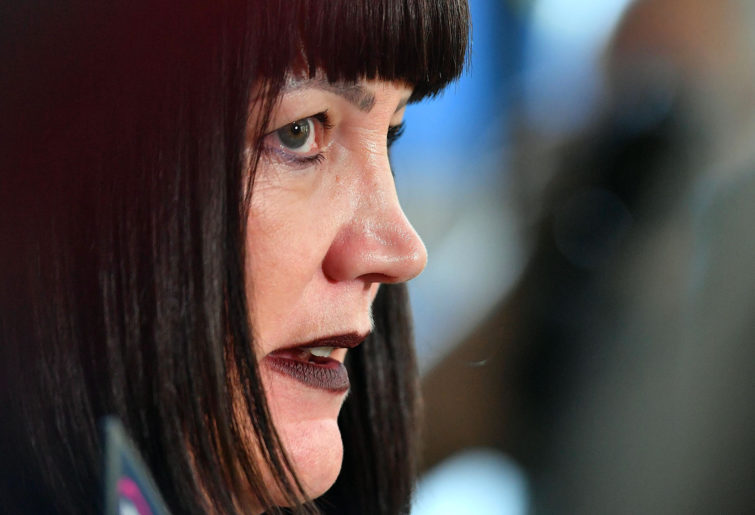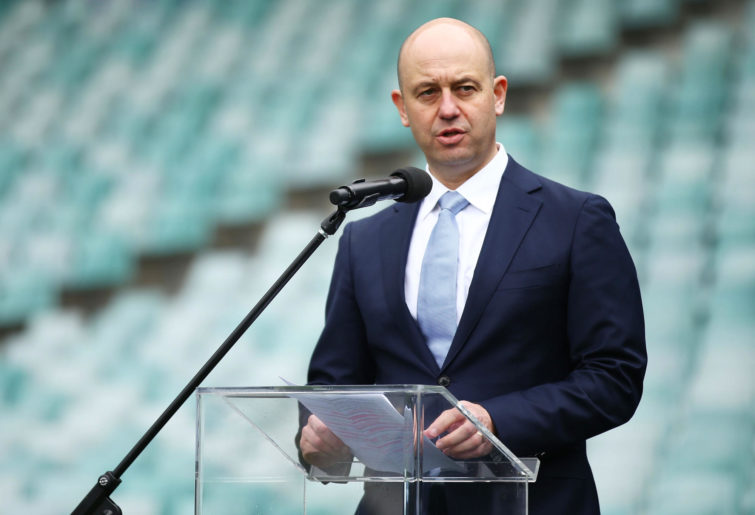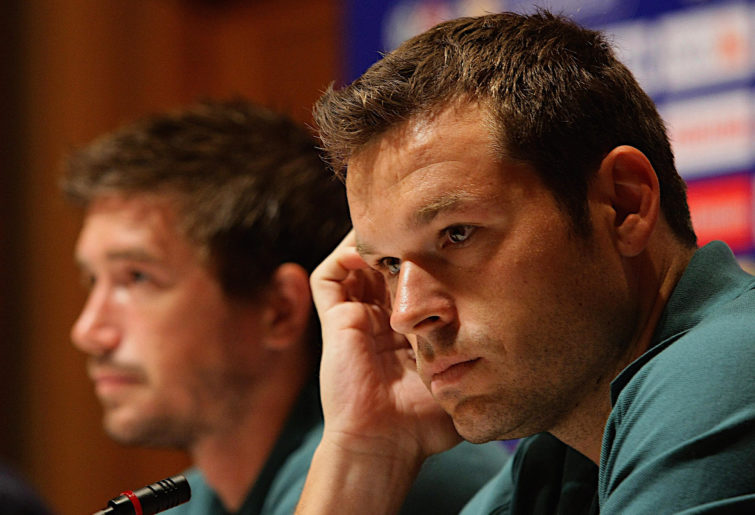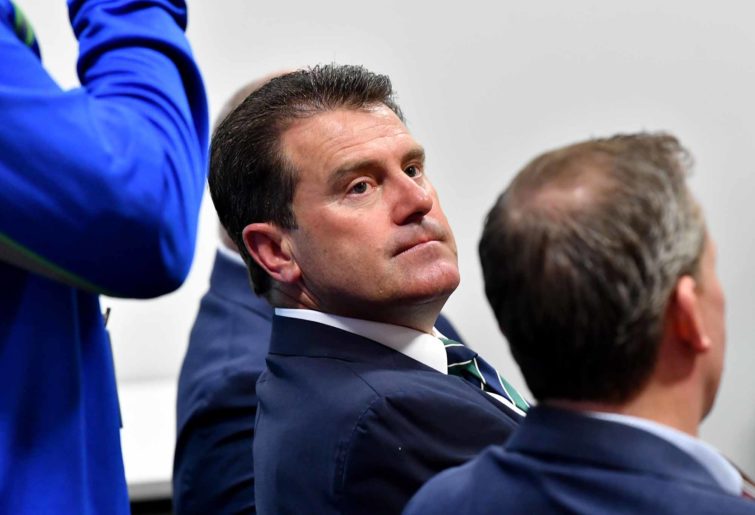Recent high-profile criticism from former players, notably Mark Viduka and other members of the football’s golden generation, has seen the establishment of the so-called Starting XI technical advisory panel by the FFA.
Some have welcomed this as a well overdue opportunity to bring experienced football nous to the table, replacing the faceless bureaucrats of the sports business world with football smarts that are down to earth and grounded in the outer suburbs.
Others question whether this is merely window-dressing – a PR exercise to bring the naysayers inside the tent, with the outcomes of this new wave of consultation secondary to the populist optics of being seen to embrace the wisdom of these retired experts.
All this gives rise to the question: is it necessary to be ingrained in a particular sport in order to effectively lead an organisation in that field?
Let’s begin by looking at some Australian examples that have been highlighted recently.
Raelene Castle recently left Rugby Australia after a tumultuous three-year period. Prior to joining RA, she had a proven track record as a respected and capable sport administrator, holding CEO roles at Netball New Zealand and the Canterbury Bulldogs in the NRL.
Radio broadcaster and former Wallabies coach, Alan Jones, was scathing in his comments about Castle as she left, opining that she knew nothing about the game.

(Saeed Khan/AFP via Getty Images)
Mark Viduka called the FFA “clueless” as he heavily criticized their decision making over the last 15 years – a period when CEOs included former rugby union supremo John O’Neill, ex-AFL and Nike bigwig Ben Buckley and experienced former NRL CEO David Gallop.
The leaders of both rugby union and football have been heavily criticised for their backgrounds, which were apparently not specific enough to the sports they oversaw.
In contrast, cricket is a sport known for rarely looking beyond its own ranks, and yet James Sutherland (ex-first-class cricketer) and Kevin Robert (ex-first-class cricketer, and previous number two to Sutherland) have been the subject of brickbat after brickbat – think wooden media performances, bungled MOU discussions, the sandpaper scandal and recent COVID-19 about-turns.
Todd Greenberg was seemingly pressured to leave the NRL after being accused of burning bridges with several key stakeholders. This is a man who was brought up in the sport and a well regarded CEO of an NRL club for several years before being promoted to the top job.
It would seem that sport-specific knowledge may not be the panacea for all problems after all?

(Matt King/Getty Images)
Perhaps we should adjust our sights, lose the parochial lens and cast a glance overseas to look at best practice examples of global sports leaders to learn where their top-end leadership talent comes from.
In the world of football, we have giants such as Real Madrid and Manchester United to consider. Madrid are led by Jose Angel Sanchez, who worked as the CEO of Sega – the gaming giants of the time – from 1995 until 2000. In the view of the board, he was the perfect man to make Real Madrid a worldwide brand, based on his understanding of worldwide marketing and brand development gained during his time at Sega. Judging by the fabled Galacticos period that followed, he was a success.
Manchester United are led at corporate level by Ed Woodward, an accountant and investment banker by trade. He is responsible for the governance involved in managing an organisation listed on the New York stock exchange. He more than doubled the club’s commercial revenue between 2005 and 2012, and United’s bulging trophy cabinet was expanded even further.
Switching sports and geography, in the USA, examine the practices of the most successful NFL team in recent times: the New England Patriots. They are led by Robert Kraft, a businessman so successful since the 1970s that he appears in the Forbes Rich List.
Moving to basketball and the iconic Los Angeles Lakers, there is Jeanie Buss, an executive with some administrative background in tennis and roller hockey, but not basketball.
Sanchez, Woodward, Kraft and Buss have many things in common, such as intellect, drive and connections. Importantly, though, they are all also not ex-professional athletes in the sport that they govern so well, with no obvious grounding in their games.
Still convinced that a background in the sport is essential to success?
Richard Scudamore was CEO of the English Premier League for many years, presiding over unprecedented success and unrivalled coverage of the league, which established it as the most exciting football competition in the world. He was a law graduate with no football prowess behind him and his early career was in newspaper operations where he oversaw the sales and marketing activity for a company. He has never been paid to kick a football ball in his life.
The obvious point here is that sport is big business and the effective (or otherwise) administration of large sporting entities has absolutely no correlation to whether the person in ultimate charge of the organisation has a background in the sport, or not.
What perhaps has been lost in the argument is a more subtle point about the input that former elite athletes can have into the technical development of a sport.
In the same way that Mark Viduka would be likely be a clueless CEO, Richard Scudamore would probably be equally inept in a technical advisory role.

(Photo by Robert Cianflone/Getty Images)
The last 15 years in Australian football have seen the likes of local coaches Ange Postecoglou, Graham Arnold, Aurelio Vidmar, Ernie Merrick, Tony Popovic and Lawrie McKinna all preside over successful on-field stints, including multiple A-League titles, continental AFC Champions League success and the AFC title.
Not successful? To say so is clearly incorrect and disrespectful. Maybe the golden generation should be re-named the rose-tinted generation.
When seeking to make changes to the type of sports organisations I have looked at here, it is important to distinguish between the front-office operations and on-field developments.
Expert input is required for specific areas, whether that be strategic planning, financial forecasting, list management or coaching.
Another level of governance often overlooked by critics who seek to make accusations at executives for not having a feel for the game is at board level.
CEOs are rarely in a position where they make unilateral decisions so detrimental to the business that they alone should be held responsible for a negative outcome. Boards are appointed to ensure that strategic objectives are pursued and that prudent financial steps are taken. To borrow cricketing terms, they are there to eradicate the howler, rather than dictate field settings.
Many sports boards have experienced former stars on them.

(AAP Image/Darren England)
Mark Taylor sat on the CA Board for years, recently replaced by fellow Test player, Michael Kasprowicz. Moya Dodd (ex-Matilda) was an influential member of the FFA board. Phil Waugh, ex-Wallaby, sits on the Rugby Australia board. Wayne Pearce, State of Origin legend, sits on the NRL board.
There is rarely a single decision or reason why a sports organisation is going through a poor period in its history. Success has a thousand fathers, but failure is an orphan and the CEO often pays the price for issues, which are either out of their control or the result of collective decision-making.
There are many reasons why a sport may experience tough times: individual stupidity (player indiscretions), unforeseeable global economic issues (GFC and COVID-19) and sheer bad luck (Castle playing hardball with Fox just before COVID-19 hit).
Bringing the discussion back to the integration of former fan favourites into the fold, a level of self-awareness is required among this cohort to acknowledge that their past ability to kick a ball, jump high or run fast does not provide them with a right to direct the operations of their particular sport.
In some cases, perhaps these legends would be better advised to let go of the bitterness created by that coaching job they were snubbed for that they thought should’ve been theirs, or that cushy media gig they missed out on.
Instead, maybe they should start their coaching badges from scratch at grassroots level rather than look for exemptions and leg-ups.
Better yet, get a degree – a post-graduate qualification would be even better – and gain some wider industry knowledge outside the sport before coming back into sport at a management level to effect some informed meaningful change.
Surely this would be a more constructive and noble approach than desperately attempting to stay relevant with grumpy and sometimes uninformed sniping from the back benches?

































































































